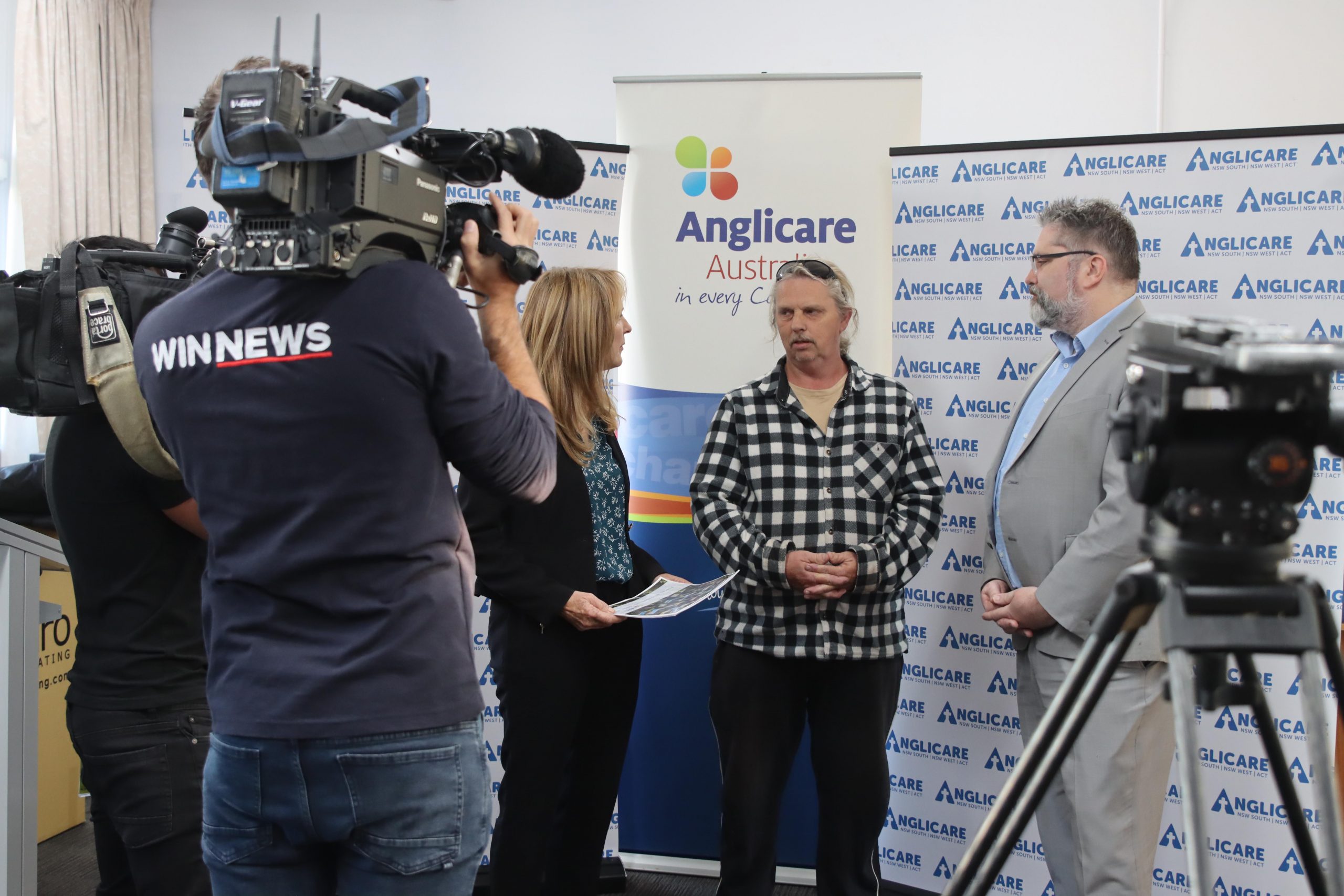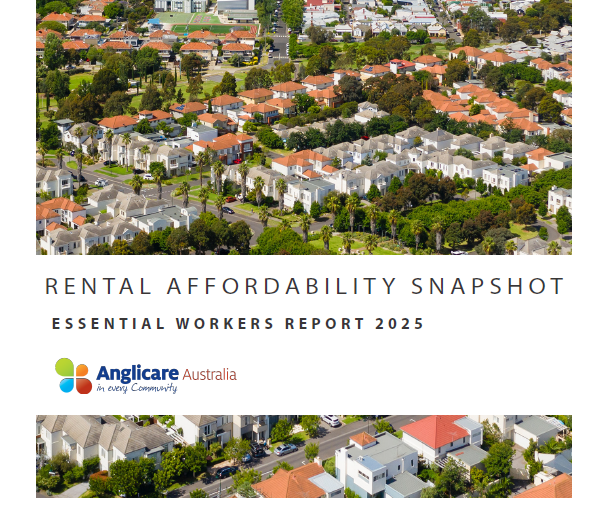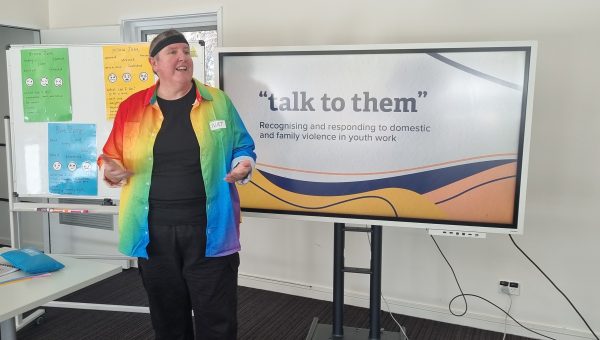Anglicare’s annual Rental Affordability Snapshot has revealed that post-COVID there is a distressing lack of affordable housing options for families in Canberra, particularly those on low incomes. The data shows a cripplingly small portion of properties would be affordable for people relying on government payments, with virtually no houses available for anyone receiving Jobseeker, Youth Allowance or Single Parenting payments. Less than 4 percent of houses were affordable across all other categories surveyed.
The data, which calculates affordable housing as 30 percent of household income, is a blow for hundreds of Canberrans who are trying to keep up with rental payments, or enter the private rental market. The ending of the coronavirus supplement this month and lifting of rental moratoriums to protect tenants, has pushed many families into further financial hardship.
Jeremy Halcrow, Anglicare ACT Chief Executive, said the data was heartbreaking. “To see the results showing such a concerning lack of housing affordability, both in Canberra and across the country, points to more than a housing crisis. This shows is a deeply flawed housing system from which there is little or no relief on the horizon for low income families,” said Mr Halcrow.
“COVID-19 has seen a flight of people to the regions, including Canberra, from inner city Melbourne and Sydney. This has impacted low income families more than other group as demand for family-size housing has gone through the roof. The wider southern NSW region is also impacted by a reduction in supply caused by the 2020 bushfires.”
“There needs to be significant government commitments to increase public housing, provide greater protections for tenants, and make the coronavirus increases to the Jobseeker supplements permanent. Housing stress and poverty will become an entrenched and distressingly ‘normalized’ part of life for a growing number of vulnerable families, and organisations like Anglicare will be increasingly called upon to bridge the gap for those in need if there is not swift and significant change. If you don’t have a safe and affordable home, every area of your life can be impacted including relationships, employment, study, mental health, physical safety and wellbeing.”
Dr Emma Campbell, CEO ACT Council of Social Service also said the results came as no surprise showing that Canberra is an unliveable city for those on low incomes. “After more than a decade of seeing these figures, it is no longer reasonable to refer to this as a housing crisis so much as a system that is working as intended – to exclude those facing disadvantage.
“The lack of affordable options means that low income Canberrans are left with no choice but to apply for and accept rental tenancy agreements that place them in rental stress. This can lead to situations where they are forced to forgo heating, fresh food, or medical appointments in order to keep up with rent.
“The real crisis is one of empathy. The coronavirus supplement provided Canberrans receiving income supports with an all too brief experience of dignity and opportunity. The removal of the supplement leaves them below the poverty line in a city with the highest rents of any capital city in Australia.
For Taylor, a 24-year-old single mother of two, the housing crisis hurts disadvantaged families the most. “I left home because of domestic violence. I was pregnant and had toddler and I ended up at a refuge and in emergency accommodation in hotels for over a year here in Canberra while I was waiting on priority housing lists,” says Taylor. “I was upset. I was scared. I was just nine weeks off having my baby and I had virtually had nowhere to go. My eldest child was only 1 ½ years old, and he found it really hard. It was probably the worst experience of my life. It was horrible.”
Taylor says that governments should look at ways to remove long wait times for people who need public housing.
“The waiting affected my mental health a lot, but I was ecstatic when I finally got my own place through public housing. I felt like I could restart my life. My oldest child loves having his own house and his own space after all the moving around.”
Wayne, a single father of two, was forced to live in a tent on one of the coldest weekends of the year because emergency housing for men in the ACT is so difficult to access.
“I had no other option,” explains Wayne. “Housing waiting lists in Canberra are notoriously long, even for people on high priority lists. There’s a massive gap in services for single fathers with children. That’s scary because more and more dads are taking responsibility for their children.
My kids thought sleeping in a tent was a novelty, but that wears off after a while. It was affecting my 8-year-old daughter’s behavior at school because she didn’t have a stable place to call home. That’s part of the reason I lost my job; I had to keep going to the school because my daughter has mild learning problems and wasn’t coping. You don’t want to cry but sometimes it becomes too much,” says Wayne.
Both Anglicare and ACTCOSS continue to advocate for the federal government to introduce a permanent and adequate increase to income supports, and call on the ACT government for an urgent expansion of social and community housing in the ACT.
ACT (Canberra only) 2014-2021
| Household Type | Payment Type | 2016 | 2017 | 2018 | 2019 | 2020 | 2021 |
| Couple, two children | Jobseeker Allowance (both adults) |
0 | 0 | 0 | 0 | 0 | 0 |
| Single, two children
|
Parenting Payment Single | 0 | 0 | 0 | 0 | 0 | 0 |
| Couple, no children | Age Pension | 3 (0.2%) | 3 (0.3%) | 5 (0.5%) | 1 (0.1%) | 1 (0.1%) | 25(2%) |
| Single, one child (aged less than 5) |
Parenting Payment Single | 0 | 0 | 0 | 0 | 0 | 0 |
| Single, one child (aged over 8) |
Jobseeker | 0 | 0 | 0 | 0 | 0 | 0 |
| Single | Age Pension | 23 (1.7%) | 20 (1.7%) | 17 (1.6%) | 15 (1.3%) | 4 (1.3%) | 18(2%) |
| Single aged over 21 | Disability Support Pension | 2 (02%) | 1 (0.1%) | 0 | 0 | 0 | 0 |
| Single | Jobseeker Allowance | 0 | 0 | 0 | 0 | 0 | 0 |
| Single aged over 18 | Youth Allowance | 0 | 0 | 0 | 0 | 0 | 0 |
| Single in share house | Youth Allowance | 0 | 0 | 0 | 0 | 0 | 0 |
| Couple, two children | Minimum Wage + FTB A | 81 (6.1%) | 26 (2.2%) | 20 (1.9%) | 16 (1.3%) | 1 (0.3%) | 10(1%) |
| Single, two children | Minimum Wage + FTB A & B | 0 | 0 | 0 | 0 | 0 | 6(1%) |
| Single | Minimum Wage | 91 (6.9%) | 41 (3.5%) | 47 (4.4%) | 56 (4.7%) | 46 (3.9%) | 42(4%) |
| Couple, two children
|
Minimum Wage + Parenting payment (partnered) + FTB A&B | 1 (0.1%) | 0 | 0 | 0 | 0 | 1 |
| Total properties found | 1323 | 1164 | 1078 | 1195 | 1166 | 1002 |
Table 1: Rental Affordability in ACT and Queanbeyan, analysed by household type and percentage
| # | Household Type | Payment Type | Number Affordable & Appropriate | Percentage Affordable & Appropriate | |
| 1 | Couple, two children (one aged less than 5, one aged less than 10) |
Jobseeker Payment (both adults) |
5 | 0.0% | |
| 2 | Single, two children (one aged less than 5, one aged less than 10) |
Parenting Payment Single | 4 | 0.0% | |
| 3 | Couple, no children | Age Pension | 32 | 3.0% | |
| 4 | Single, one child (aged less than 5) |
Parenting Payment Single | 5 | 0.0% | |
| 5 | Single, one child (aged over 8) |
Jobseeker Payment (formerly Newstart) | 2 | 0.0% | |
| 6 | Single | Age Pension | 20 | 2.0% | |
| 7 | Single aged over 21 | Disability Support Pension | 7 | 1.0% | |
| 8 | Single | Jobseeker Payment (formerly Newstart) | 2 | 0.0% | |
| 9 | Single aged over 18 | Youth Allowance | 0 | 0.0% | |
| 10 | Single in share house | Youth Allowance | 0 | 0.0% | |
| 11 | Couple, two children (one aged less than 5, one aged less than 10) |
Minimum Wage + FTB A
(both adults) |
12 | 1.0% | |
| 12 | Single, two children (one aged less than 5, one aged less than 10) |
Minimum Wage + FTB A & B | 6 | 1.0% | |
| 13 | Single | Minimum Wage | 45 | 4.0% | |
| 14 | Couple, two children
(one aged less than 5, one aged less than 10) |
Minimum Wage + Parenting payment (partnered) + FTB A & B | 6 | 1.0% | |
| Total No of Properties | 1058 | ||||



